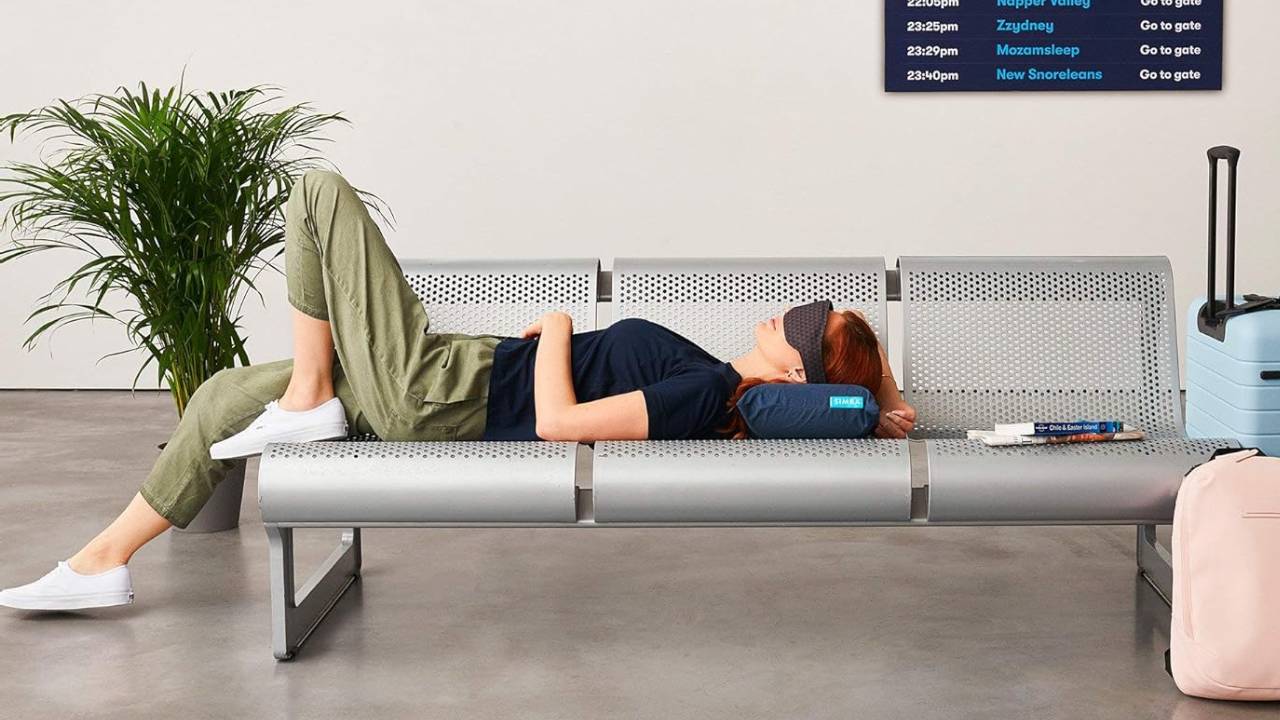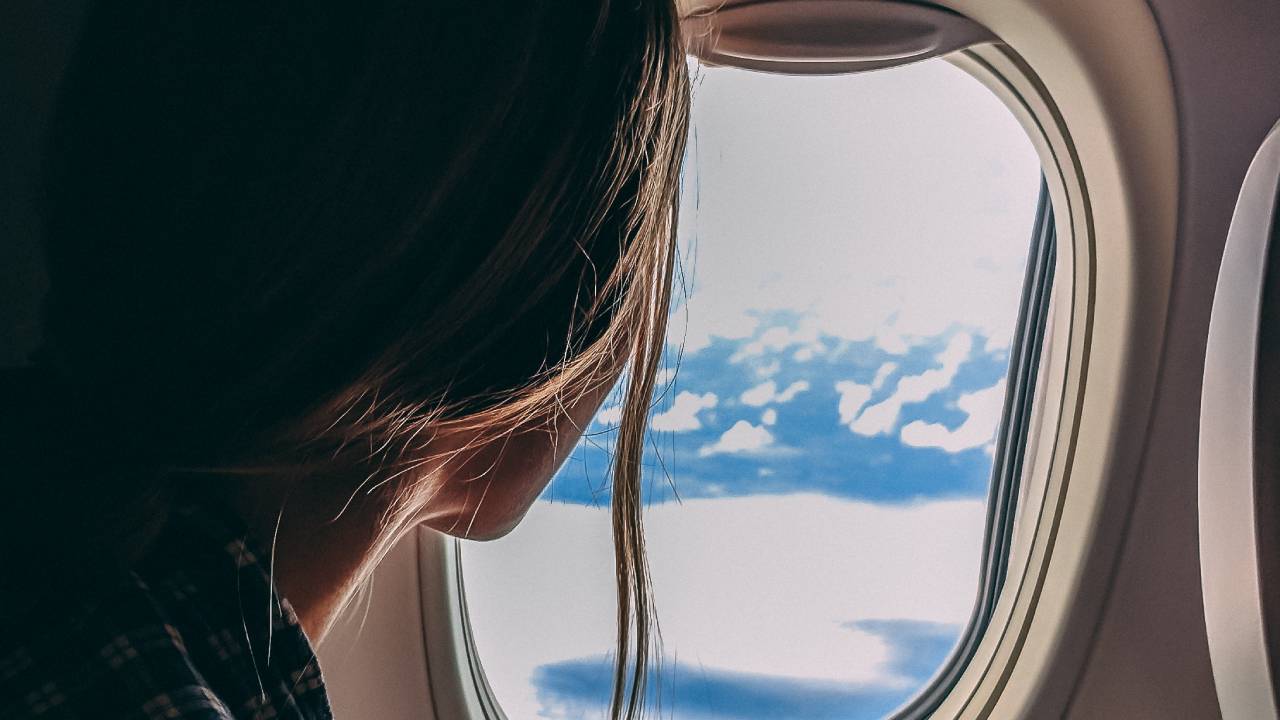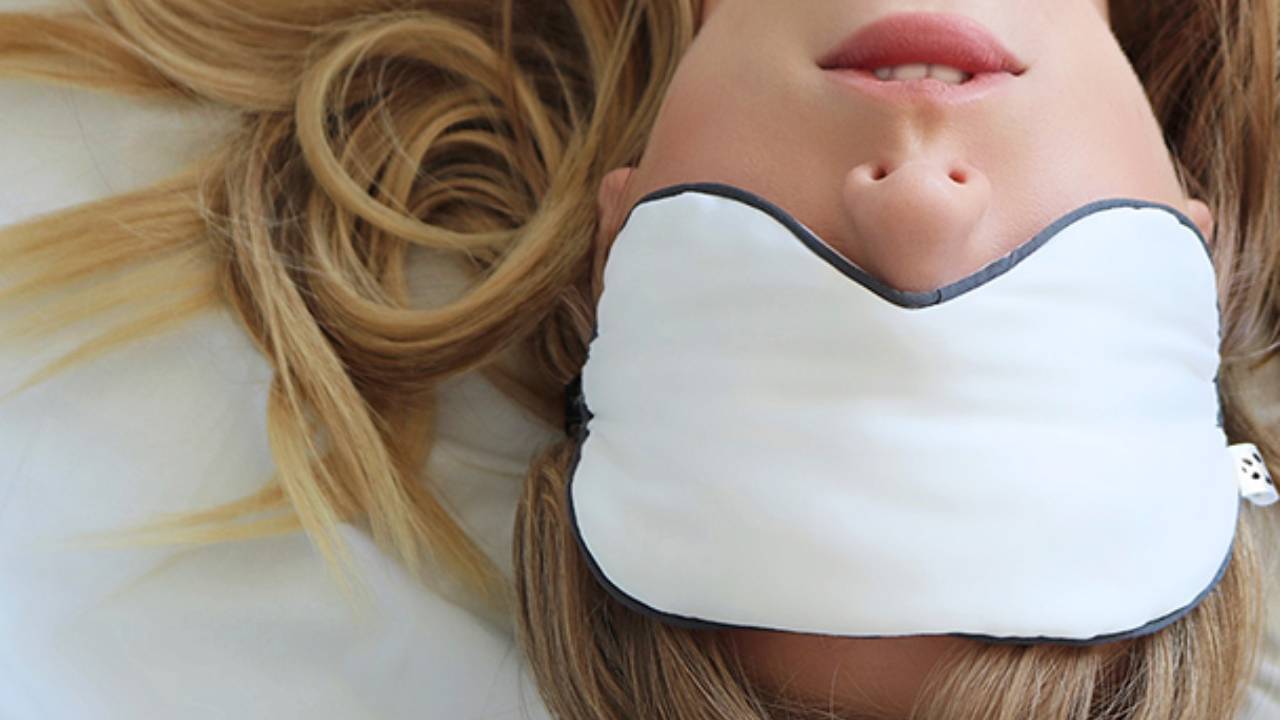How to sleep on a plane: 7 tips for a restful flight
7 tips for sleeping on an aeroplane, including time zone tips and travel essentials


Get all the latest news, reviews, deals and buying guides on gorgeous tech, home and active products from the T3 experts
You are now subscribed
Your newsletter sign-up was successful
With the summer holidays approaching, it’s time to pack your best suitcase and head off to a sunny destination. But regardless of the length of your flight, sleeping on a plane isn't the easiest thing to do.
From turbulence and children crying to uncomfortable seats and limited leg room, a plane isn’t the best environment for getting a restful sleep. But having a quick nap or a lengthy sleep on a plane can make you feel more rested and refreshed so you’re ready to enjoy your holiday, rather than feeling exhausted and jet lagged when you land.
To achieve this, here’s seven tips for sleeping on a plane, including time zone tips and travel essentials.
1. Sleep according to your landing time zone
The first tip for sleeping on a plane is to sleep according to your landing time zone. During your journey, time your sleep or nap so you’re on track when you land. You can do this by setting your watch or phone to your destination’s time zone so you know when it’s time to rest and if you should be sleeping at all.
To understand this better, let me give you an example. When I had a nine hour flight from Madrid to Cuba, I tried to stay up during the entire flight, as it would be nighttime when I landed in Havana. As my flight was during the day, it wasn’t too tricky to do this, but when I started to feel like I wanted to sleep, I took a very quick nap an hour before I landed so I didn’t sleep too long or disrupt my night’s sleep when I got to my hotel.
2. Choose your seat
Choosing a seat on the plane does cost extra but it can massively help if you’re trying to get a good sleep. The right seat on a plane is completely different for each person; while some people love a window seat, others might prefer an aisle, and so on. But if you’re prioritising sleep, you might want to consider a window seat, as you can close the blind to shut out the light, and you have something to rest your head against. Alternatively, try to choose a seat row that’s away from busy areas on the plane, like toilets and spots where flight attendants sit or organise refreshments.

3. Avoid alcohol and drink plenty of water
Let’s face it, who doesn’t like a pre-flight pint in duty free?! Well, if you’re trying to sleep on the plane, you might regret having a drink before boarding. Alcohol is extremely disruptive to your sleep, whether you’re on a plane or not, so you’ll likely feel more lethargic if you have an alcoholic or caffeinated beverage while flying. Planes are extremely dehydrating environments, and you’ll tend to feel more thirsty as the air is so dry. Instead of alcohol, try to drink as much water before, during and after your flight for a better sleep.
Get all the latest news, reviews, deals and buying guides on gorgeous tech, home and active products from the T3 experts
4. Wear comfortable clothes
While you might want to dress up for your flight so you’re ready to go out when you land, it’s not a comfortable situation to sleep in. So, ditch the heels, jeans and flowy sundresses, and opt for comfortable clothes. Choose soft materials that are kind to the skin, and try to dress in layers so you can adjust appropriately to the temperature on the plane. If you’re on a long haul flight, I’d recommend bringing compression socks to reduce the plane’s pressure on your feet and swap your shoes for slippers.
5. Bring an eye mask and headphones
It’s arguably much easier to fall asleep in a dark room with limited noise, but unfortunately, you’re not always guaranteed that on a plane. To get around this and reduce any disruptive stimuli, bring an eye mask and a pair of headphones on your travels. An eye mask will block out any unwanted light, and noise-cancelling headphones can cut out any noise, lessen ear pain and play relaxing music to help you fall asleep.

6. Bring a neck pillow
Another must-have travel accessory is a neck pillow. I have been on far too many flights where I’ve woken up with a strained neck and have felt uncomfortable throughout my holiday, so take it from me: you need a neck pillow. While they might not be the most stylish, neck pillows are comfortable, supportive and keep your spine aligned and protect your head and neck as you sleep upright.
7. Stick to your sleep schedule
Where possible, stick to your sleep schedule. When it comes to planes and travelling, most of your daily habits go out the window but if you’re not prioritising your sleep, you’ll feel exhausted for your holiday. Try to keep to your sleep schedule as much as possible, for example, do a quick skincare routine, read and get your normal hours of sleep. If you’re flying during hours that you wouldn’t sleep, try not to force it as you’ll just feel uncomfortable and fidgety.

Beth is Home Editor for T3, looking after style, living and wellness. From the comfiest mattresses to strange things you can cook in an air fryer, Beth covers sleep, smart home, coffee machines, watches, grooming tools, fragrances, gardening and more.
In her spare time, Beth enjoys running, reading, baking and attempting craft projects that will probably end in disaster!